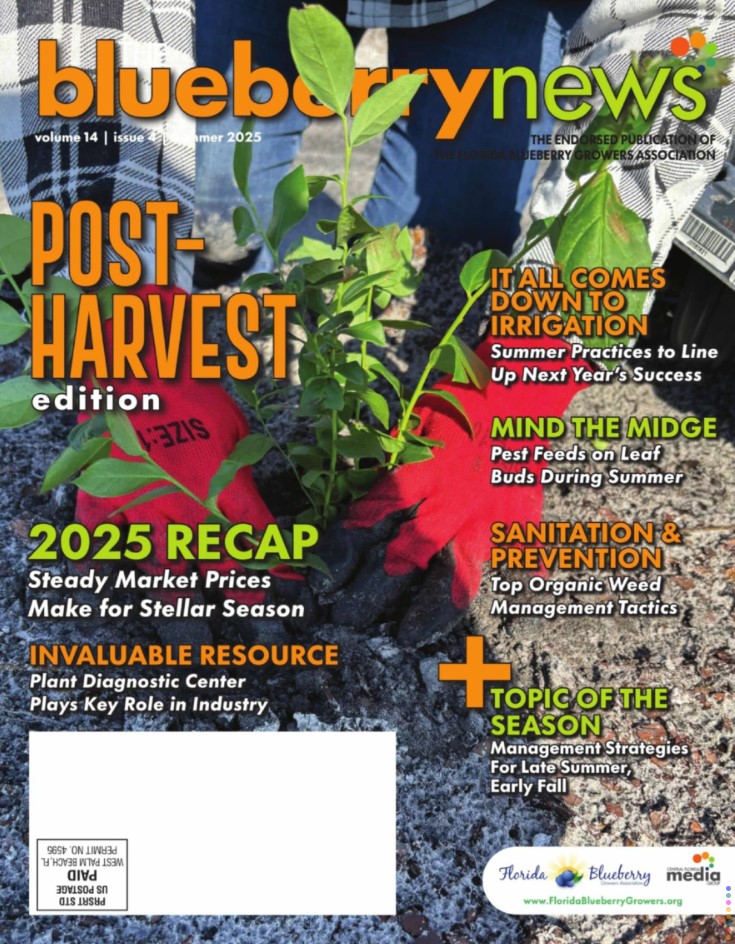Reflecting on the Highs and Lows of the 2019 Florida Blueberry Season
A notable win was being included in the recently signed disaster relief funds which retroactively applies to our Blueberry growers affected by Hurricane Irma. You will finally be able to apply for the much needed relief after suffering losses from the devastating storm.
This was a record breaking season. Record amounts of Mexican fruit crossed our U.S. border during the Florida season and prices hit record lows during our production peak in April.
While many in the Ag community consider USMCA an improvement, there are no improvements for seasonal fruits and vegetables and like its NAFTA predecessor, we, the Florida Blueberry grower, remain vulnerable and unprotected.
Blueberries in the southeast have experienced normal growth and stability over the last decade but recent and massive plantings in Mexico threaten the livelihood of domestic blueberry producers.
The unprecedented amounts of Mexican fruit in the U.S. during March, April, and May are absolutely crippling the southeast domestic blueberry industry. We have suffered under the current NAFTA and will continue to suffer under the new USMCA.
Since 2010, more than 25x the amount of fruit is now in a three month period directly competing with our Florida crop.
While our growing costs domestically have increased because of regulations and other factors, Mexican growers benefit from hundreds of millions of dollars of government subsidies each year.
Our harvest cost to pick our crop have increased up to double in some areas due to the unreasonably high cost of H2A labor, while other countries benefit from extremely low labor costs, paying their harvesters for one day less than what we pay for an hour.
Your Florida Blueberry Growers Association Board is working alongside other commodity groups, such as the FFVA and Florida Farm Bureau, to continue to advocate for our industry for trade remedies. The Florida Delegation in Congress has long been advocating for reasonable provisions to protect specialty crops.
We remain hopeful that a solution for the Blue





